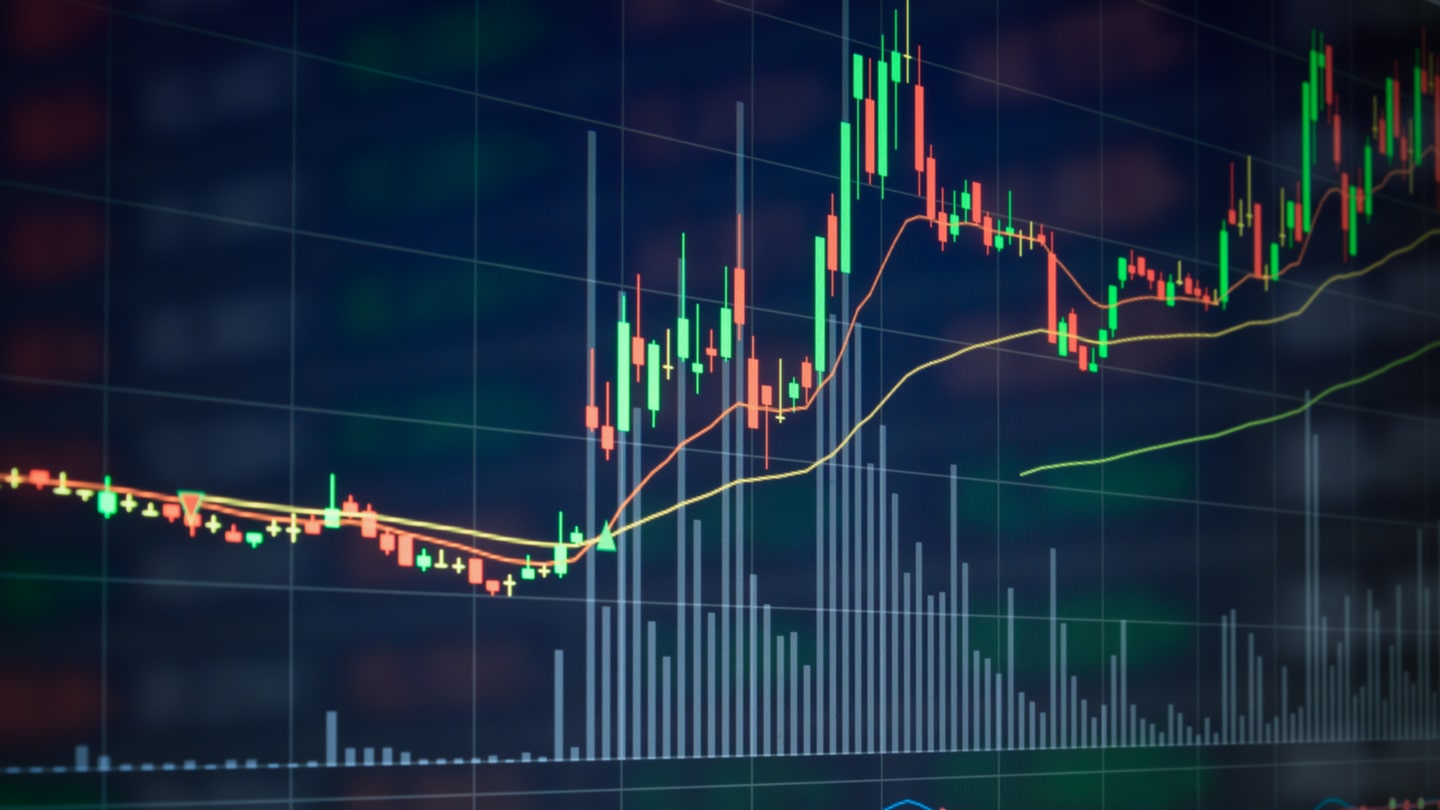Economy
Selecting a Forex Turnkey Solution for Your Brokerage Business in 2024: Key Considerations

The exponential expansion and lucrative prospects within the Forex trading sector continue to attract numerous businesses annually. If you’re thinking of starting your own retail Forex brokerage, it’s important to understand all the unique merits offered by a Forex turnkey solution.
Let’s delve into the advantages associated with adopting such a solution and discuss pivotal factors while seeking the most fitting system tailored to your requirements in 2024.
Overview of Forex Turnkey Solutions
The concept of Forex turnkey solutions offers a comprehensive solution for enterprises aiming to establish a Forex brokerage with minimal effort and time investment. It encompasses secure payment gateways, access to modern technology, and guidance on regulatory compliance.
Within the turnkey Forex framework lie white-label platforms, social trading systems, risk management solutions, and automated trading modules, facilitating the swift establishment of an online Forex brokerage service without the need to construct it from the ground up.
Advantages of Utilising a Turnkey Solution for FX Brokerage Launch
An all-encompassing solution offers a wide variety of services and functionalities, assisting business owners in swiftly establishing their Forex brokerage with minimal initial expenses. This system offers numerous advantages during the inception of a new FX trading enterprise.
Accelerated Time-to-Market
A turnkey Forex solution is meticulously crafted to expedite your launch process. With this system, the entire setup procedures can be executed within days rather than weeks or months. This swifter setup duration can equip entrepreneurs with superiority over opponents who might still be dealing with constructing their infrastructure from scratch. Moreover, with a pre-fabricated platform boasting integrated features, you can promptly start revenue generation.
Decreased Overhead Expenses
Forex turnkey solutions effectively diminish overhead costs by supplying a pre-constructed trading platform. The necessity to recruit additional personnel, such as developers and designers, for platform creation becomes unnecessary. Risk management protocols, automated trading modules, and secure payment gateways are integrated into the system, thereby economising both time and financial resources typically expended during development.
Access to Leading-Edge Technology and Features
A Forex turnkey solution grants access to cutting-edge trading technologies, including sophisticated charting tools, automated trading robots, and analytics modules. This access helps in refining trading strategies, maintaining a competitive edge, and ensuring compliance with anti-money laundering regulations.
Enhanced Focus on Fundamental Business Operations
A turnkey system empowers business proprietors to swiftly launch their trading enterprises without delving into intricate technicalities. This enables them to concentrate on their fundamental business operations and generate revenue rather than allocating resources towards setup expenses.
Heightened Revenue Prospects and Profitability
Employing an FX turnkey system provides entrepreneurs with augmented revenue and profitability prospects by quickening time-to-market, capitalising on Forex market trends, and limiting costs through access to sophisticated tools like automated trading modules and risk management systems. When evaluating potential solutions, it’s crucial to thoroughly consider all available options to pinpoint the one that aligns best with your business requirements.
Making Your Decision in 2024
In 2024, there is a big choice of turnkey solution providers. Amidst this plethora of options, determining which features and technologies will best suit a company’s needs can be a daunting task. To ensure the selection of the most suitable option, businesses should take into account the following factors:
- The initial step in choosing a turnkey Forex broker involves defining the company’s goals and objectives. It’s imperative to consider the intended trading activities and ensure that the chosen solution possesses the necessary technology and capabilities to support them effectively.
- The alignment with the target audience is crucial when selecting a turnkey solution. Each solution caters to a different audience, emphasising the importance of choosing one that resonates well with the specific customer base.
- The evaluation of features and technology provided by a Forex broker turnkey solution is paramount. Paying particular attention to automated trading platform modules and risk management tools is crucial, as they can significantly impact trading performance and profitability.
- A dependable liquidity provider is vital for a Forex business. Therefore, understanding the available FX liquidity options and selecting the one that aligns best with business requirements is indispensable when choosing a turnkey solution.
- Compliance with relevant laws and regulations is of utmost importance. Opting for solutions licensed and regulated by reputable authorities helps ensure the business operates within legal boundaries.
- Thoroughly researching the cost and pricing structure of each turnkey solution is essential. Since options vary in features, services, and pricing, it’s crucial to select one that fits within the budget requirements.
- Choosing a reliable Forex turnkey solution that offers robust customer support and technical assistance is crucial. This ensures ongoing help in case of any system issues.
By carefully considering these factors while selecting a Forex turnkey solution in 2024, businesses can make informed decisions that align with their needs.
In Summary
Choosing the appropriate Forex turnkey solution holds immense importance for businesses in 2024. By carefully considering the key factors outlined above, companies can identify a solution that not only meets their needs but also empowers them to optimise profits. With the right turnkey system, companies can streamline their trading operations, leading to enhanced profitability and smoother overall performance.
Economy
Uzoka-Anite Warns Against Inflation Risks from Oil, Gas Earnings Surge

By Adedapo Adesanya
The Minister of State for Finance and chairman of the Federation Account Allocation Committee (FAAC), Mrs Doris Uzoka-Anite, has cautioned that a projected surge in oil and gas revenues following President Bola Tinubu’s latest executive order could trigger inflationary pressures and exchange rate volatility if not carefully managed.
She said that the recent executive order mandating the direct remittance of certain oil sector revenues to the federation account would provide regulatory clarity and significantly strengthen revenues accruing to the federation account, but warned that sudden liquidity injections into the economy may complicate monetary policy coordination with the Central Bank of Nigeria and erode the real value of allocations to federal, state and local governments.
While addressing members of FAAC in Abuja, Mrs Uzoka-Anite commended President Tinubu on the order, describing the development as a structural fiscal correction aimed at restoring constitutional discipline to petroleum revenue management and enhancing distributable income across the three tiers of government.
She said that the revenue outlook was improving due to ongoing structural reforms introduced by the Federal Government.
According to her, the newly implemented tax reform measures are broadening the tax base, improving compliance and enhancing administrative efficiency.
“Also, the executive order signed by Mr President on February 13 is reinforcing revenue discipline in the oil and gas sector and reducing leakages,” she said.
The minister said that the order suspends the 30 per cent allocation to the Frontier Exploration Fund (FEF) and suspends the 30 per cent management fee on oil and gas profit payable to NNPC Limited.
She said that the order also directed that gas flare penalties be paid into the federation account, and mandated full remittance of petroleum revenues without unconstitutional deductions.
Mrs Uzoka-Anite said that the reform marks a shift from a retention-based oil revenue model to a gross remittance, federation-first model.
“The implications for FAAC are very significant; more oil and gas profit will now flow directly into the federation account.
“Gas flare penalties will become distributable revenue, and previously retained management fees will no longer reduce remittable inflows,” she said.
She said that the reforms were expected to result in higher monthly gross inflows into the federation account, and increased allocations to federal, state and local governments.
The minister said that a retrospective audit of the FFF, the Midstream and Downstream Gas Infrastructure, was due, and NNPC management fee deductions could lead to recoveries that may provide a one-off fiscal boost.
She welcomed the improved revenue outlook and cautioned against the risks associated with sudden liquidity injections.
“Experience shows that when revenues rise sharply and are distributed fully and immediately, large liquidity injections can increase inflationary pressures, complicate monetary management and reduce the real purchasing power of allocations,” she said.
She said that excess aggregate demand, exchange rate pressure, asset price distortions and inflationary risks could arise if increased inflows were not carefully managed.
Mrs Uzoka-Anite said that to mitigate such risks, she proposed phased disbursement of one-off recoveries.
She suggested that retrospective recoveries be staggered rather than injected into the economy in bulk, with a portion temporarily warehoused in a stabilisation buffer.
She also recommended strengthening the excess crude and stabilisation buffer mechanism to channel part of incremental inflows into a fiscal stabilisation window.
“This could offset revenue shortfalls in weaker months and reduce procyclicality in spending.
According to her, enhanced coordination with the CBN would be pursued to align fiscal injections with liquidity management tools and support open market operations where necessary.
Mrs Uzoka-Anite urged states and federal Ministries, Departments and Agencies (MDAs) to prioritise capital expenditure over recurrent expenditure.
She called for investment in infrastructure, agriculture, energy and other productive sectors, and avoid unsustainable wage or consumption spikes.
“Productive spending expands supply capacity and mitigates inflation,” she said.
She also announced plans to introduce monthly revenue transparency dashboards, production-to-remittance reconciliation reporting, and clear reporting of incremental inflows arising from tax reforms and the executive order.
The junior finance minister said that the reforms presented an opportunity to deepen fiscal federalism, enhance distributable revenue, restore constitutional clarity and strengthen trust among tiers of government.
She also advised that increased revenue must not translate into fiscal complacency.
“We must resist the temptation to treat incremental inflows as permanent windfalls. We should reduce debt burdens, clear arrears responsibly, build buffers and invest in growth-enhancing sectors,” she said.
Economy
Dangote Refinery Shares to be Available to Public in Five Months

By Adedapo Adesanya
The chairman of Dangote Group, Mr Aliko Dangote, has said that within the next five months, Nigerians should be able to purchase shares of Dangote Petroleum and Refinery.
Mr Dangote made this revelation on Sunday during a tour of the facility by the chief executive of the Nigerian National Petroleum Company (NNPC) Limited, Mr Bayo Ojulari, alongside members of the company’s executive management.
The $20 billion refinery is the largest single-train refinery in the world with 650,000 barrels per day refining capacity. There are efforts to boost the capacity to 1.4 million barrels per day soon.
Speaking with journalists, Mr Dangote said, “And the other issue is that they (NNPC) are holding 7.25 per cent of the shares that we have here, which is more than the shares Elon Musk has in Tesla. And they are holding that on behalf of Nigerians,” he said.
“So individually, Nigerians too will have an opportunity in the next, maybe a maximum of four to five months. There will actually be an opportunity to buy the shares.”
He added that shareholders will have the option to receive their dividends in either naira or dollars, as the refinery also earns in dollars.
Commenting on Mr Ojulari’s visit, the billionaire businessman said the NNPC, represented by Mr Ojulari and its management team, was not just a guest but a shareholder.
“Today is really our best day ever” at the facility. I know NNPC invested in us when we were not really sure whether the refinery would be successful.
“So that’s the kind of level of confidence. But right now, the relationship with the new set of people that we have at NNPC, I think the sky is the limit, and we will cooperate and also make sure that we work together to make sure that we make Nigerians proud.”
Speaking on prospects of partnership with NNPC in the upstream sector, he said, “We have block 71, 72, but we’re going to look much deeper”.
“Most likely, depending on our own discussions with them, we will partner with them, maybe in some of the upstream. They, too, will partner with us here because here is not just a refinery, it’s an industrial hub.
“And that’s why we’re doing linear alkaline benzene, which is a raw material for detergents, ” he added.
Economy
NGX Investigates Zichis Stocks After 859% Rise in One Month

By Aduragbemi Omiyale
The Nigerian Exchange (NGX) Limited has launched an investigation into trading activities on the shares of Zichis Agro-Allied Industries Plc.
A notice from Customs Street on Monday disclosed that this has led to the suspension of the company for now.
This development comes about a month after Zichis was listed on the domestic bourse and placed in the growth board of the NGX.
In the circular, it was disclosed that the suspension may be lifted after the conclusion of the findings, but for now, investors will not be able to trade the organisation’s securities on the NGX platform.
“The suspension of trading in Zichis shares shall be lifted upon the conclusion of an investigation into the trading activities on the company’s shares,” a part of the disclosure stated.
The bourse explained that it wielded the big stick on Zichis in compliance with Rule 7.0, Rules on Suspension of Trading in Listed Securities, Rulebook of The Exchange (Issuers’ Rules).
This part of the law states that, “Notwithstanding any of the foregoing provisions, the exchange may, in accordance with any of its rules, place the trading of any security on suspension.
“It may also do so if it is of the view that such suspension will be in the interest of the investing public and in accordance with the SEC Rules.”
In announcing the action on the firm, the NGX declared that, “The shares of Zichis Agro-Allied Industries Plc have been suspended from trading on the facilities of Nigerian Exchange Limited (NGX), effective today, Monday, February 23, 2026.”
Business Post reports that last week, shares of Zichis appreciated by 60.74 per cent to N17.36. It joined the stock exchange at N1.81, indicating it has gained N15.55 or 859.12 per cent in one month.
-

 Feature/OPED6 years ago
Feature/OPED6 years agoDavos was Different this year
-
Travel/Tourism10 years ago
Lagos Seals Western Lodge Hotel In Ikorodu
-

 Showbiz3 years ago
Showbiz3 years agoEstranged Lover Releases Videos of Empress Njamah Bathing
-

 Banking8 years ago
Banking8 years agoSort Codes of GTBank Branches in Nigeria
-

 Economy3 years ago
Economy3 years agoSubsidy Removal: CNG at N130 Per Litre Cheaper Than Petrol—IPMAN
-

 Banking3 years ago
Banking3 years agoSort Codes of UBA Branches in Nigeria
-

 Banking3 years ago
Banking3 years agoFirst Bank Announces Planned Downtime
-

 Sports3 years ago
Sports3 years agoHighest Paid Nigerian Footballer – How Much Do Nigerian Footballers Earn




















